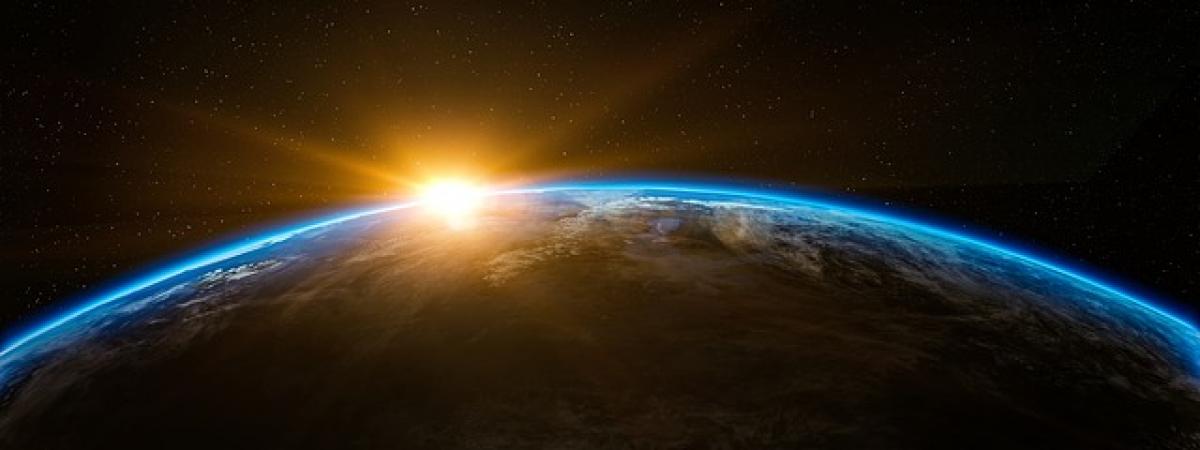10 Health Hazards in Outer Space
published in Reader's Digest,
14 October 2016

Space is the most hostile of environments for humans, and it’s not just the lack of gravity that interferes with the workings of your body. The astronaut faces some astronomical threats to his wellbeing. As the astronaut flies into the void, the hazards to health would be huge without the specially-designed spacsuit and spacecraft. Here's what the body would be expected to deal with.
1. Loss of air pressure
Step into space, and you step into a vacuum: there are virtually no gas molecules, just ‘space’ as its name suggests. Dame Frances Ashcroft, geneticist at Oxford University explains that, unprotected, you would perish in a few brief, agonising moments as “the air would rush out of your lungs, the dissolved gases in your blood and body fluids would vaporize, forcing apart your cells and forming bubbles in your capillaries, so that no oxygen would reach your brain; air trapped in internal organs would expand, rupturing your gut and eardrums…you would be unconscious in less than fifteen seconds”.
2. Freezing temperatures
"One of the most beautiful sights [in orbit] is a urine dump at sunset, because as the stuff comes out and as it hits the exit nozzle it instantly flashes into ten million little ice crystals which go out almost in a hemisphere… the stuff goes in every direction, and all radially out from the spacecraft at relatively high velocity."
Apollo 9 astronaut Rusty Schweickart describes what happens to human waste once it leaves the craft at -270oC, it's bitterly cold in space. If that’s what happens to urine, consider what could happen to the rest of your body.
3. G-forces
During take-off, the body is exposed to strong G-forces as the spacecraft accelerates. Initially, you will feel heavy and find it difficult to stand up; without an ‘Anti-G suit’ you could lose vision and then consciousness as blood is pulled towards your legs, depriving your brain of oxygen. It will also be difficult to breathe as your diaphragm is pulled down.
4. Microgravity
Once in space, there’s almost no gravity; the astronaut is weightless. Having lost Earth’s gravitational pull, your body fluids shift upwards causing your face to puff up and your eyes to bulge. Meanwhile, the increased blood volume near the heart fools the body into thinking it needs to reduce red blood cell production.
What’s more, loss of bone density and muscle mass occur as the astronaut ceases using his legs for walking, instead floating around; his spine will also elongate, making him taller.
5. Space debris
This might not impact your body at all, but it's something that all astronauts need to consider. With more than 500,000 pieces of debris or ‘junk’ orbiting Earth, travelling at up to 17,500 miles per hour, astronauts are even at risk from flying flecks of paint, with numerous space shuttle windows damaged as a result.
6. Burning heat
The sun heats one side of the International Space Station to 121°C; the close living quarters and vast amounts of electronic equipment inside the well-insulated spacecraft can also make it unbearably hot.
The main danger of overheating, though, comes during re-entry into the Earth’s atmosphere, due to friction and rapid air compression. NASA estimates that temperatures can exceed 2500°C: capable of melting steel and iron; lethal to humans.
7. A topsy-turvy landscape
Astronauts frequently suffer from ‘space sickness’ – feelings of vertigo, headache, dizziness, nausea, drowsiness and irritability.
Human balance relies on input from, among other things, your eyes, ears and legs. In space, your eyes have no ‘fixed horizon’ to focus on (well-known as the secret to avoiding sea-sickness), since the spacecraft is in constant freefall; your inner ear is no longer able to use gravity to work out your orientation and your legs are floating in mid-air, unable to sense the ground. It’s no wonder that you feel disoriented.
8. Radiation
Solar radiation and ‘cosmic rays’ (radiation from exploding stars) bombard the astronaut. At low doses, they may damage DNA and cause cancer; a sudden burst of radiation from a ‘solar flare’ would kill within hours.
9. Shortened daytimes
As the Space Shuttle orbits the earth, the sun rises and sets every 90 minutes. The body’s biological clock is regulated by the light-dark cycle and so space travel plays havoc with your body rhythms, altering sleep patterns and hormone levels.
10. Mind-blowing proportions
The psychological effects of space travel are as serious as the physical. The astronaut feels himself travelling in a seemingly infinite expanse of mystery and wonder, of unfathomable size and power. Space travel can ‘resize’ us, shrinking us and the world we call home to a seeming insignificance. Neil Armstrong, on returning to earth as a hero, did not feel great, but “very, very small.”
Blast off? Major Tim Peake just did, and his experiments may teach us a lot about human physiology.
